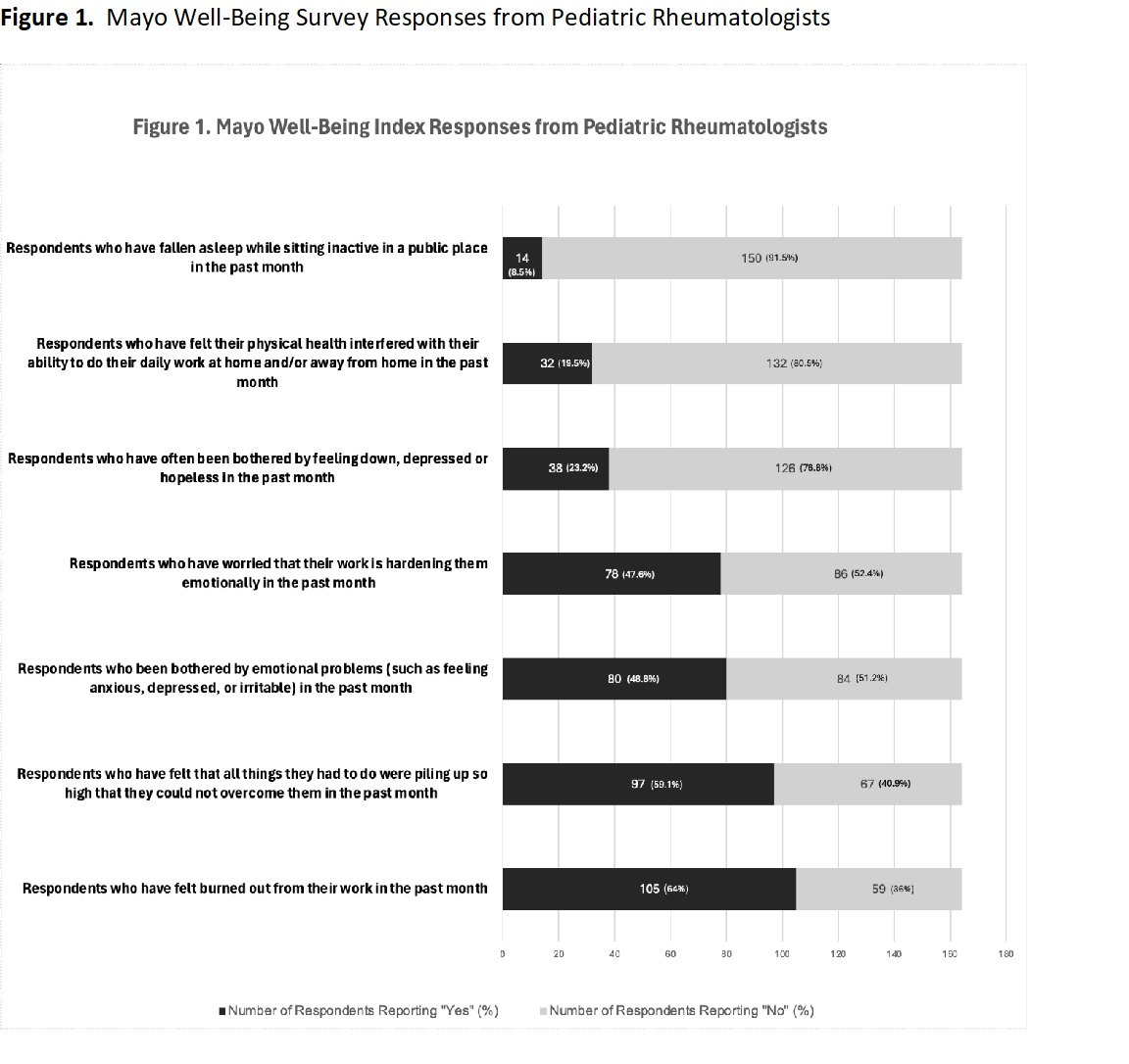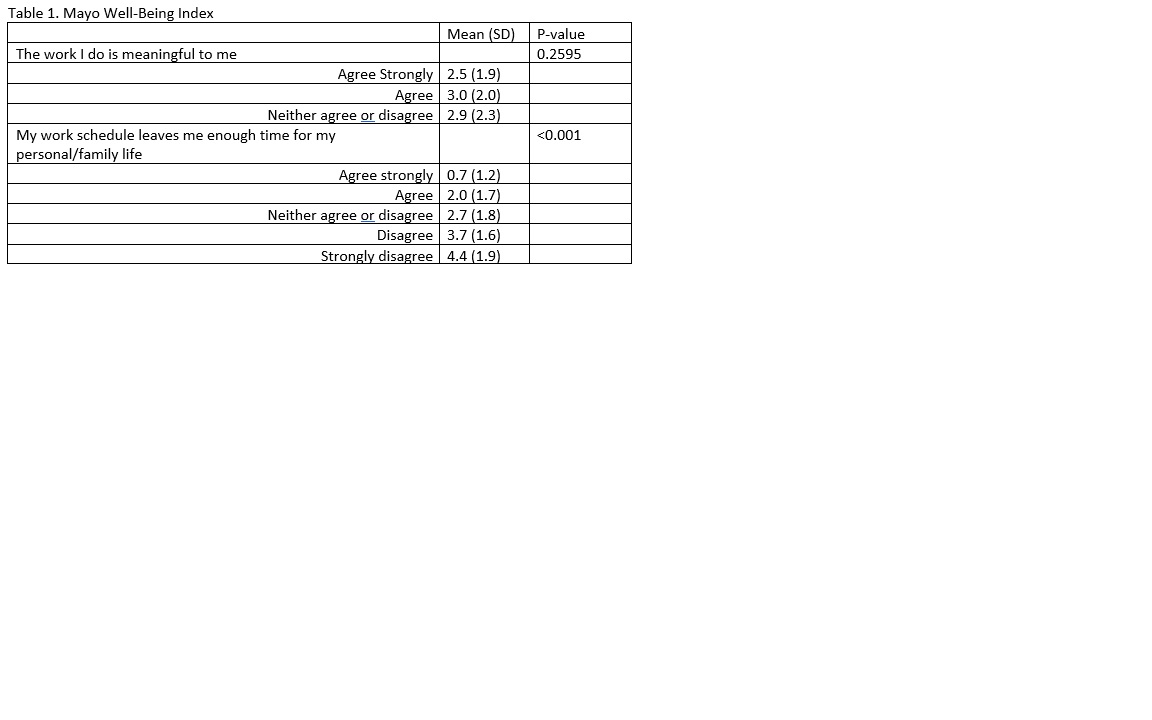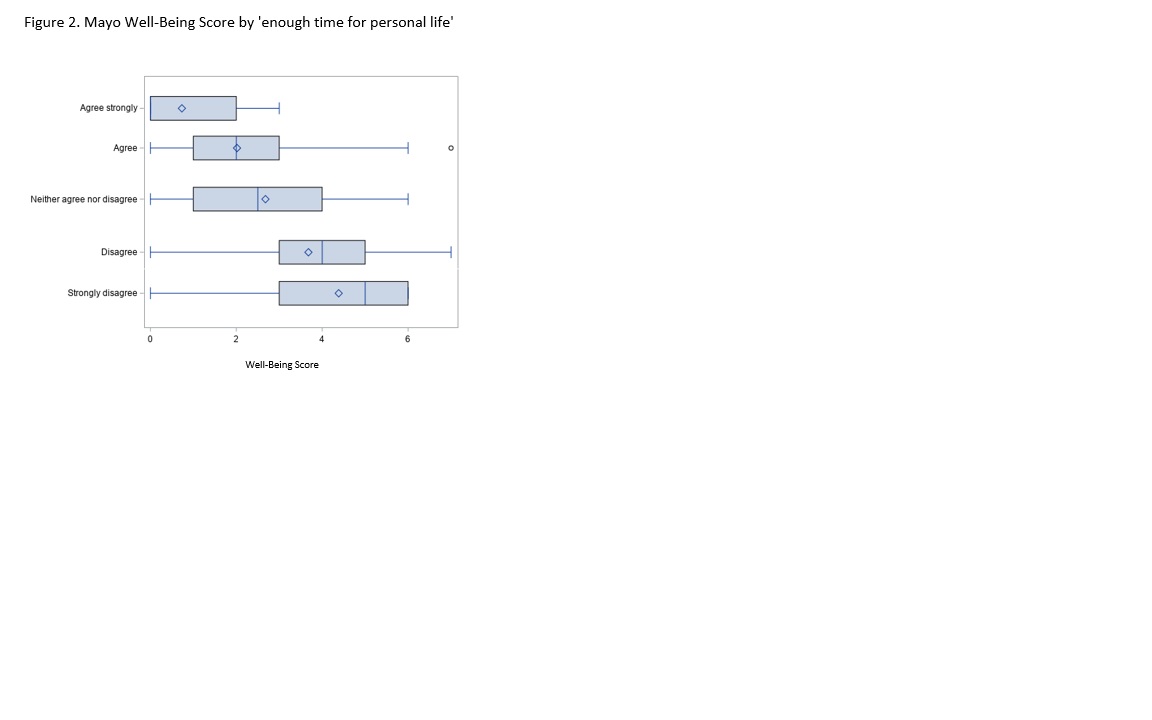Session Information
Session Type: Poster Session C
Session Time: 10:30AM-12:30PM
Background/Purpose: A high proportion of pediatricians experience burnout symptom impacting patient care and academic productivity. Burnout is a state of physical, emotional or mental exhaustion caused by extended periods of stress that feel as though they cannot be ameliorated. Physician burnout impacts patient care and academic activities. American Medical Association (AMA) reported that at least 55% of pediatric physicians experienced burnout in 2022. Literature on wellness and burnout among pediatric rheumatologists is scarce. We aimed to assess burnout among pediatric rheumatologists and identify factors impacting wellness and burnout.
Methods: A cross-sectional study involving two questionnaires (Mayo Well-Being Index and Mini Z Burnout) were administered to pediatric rheumatologist members of Childhood Arthritis and Rheumatology Research Alliance (CARRA). Information on baseline demographics, commute, workplace culture, size and responsibilities including call and clinic time were obtained. Descriptive statistics were used to summarize sociodemographic information, and ANOVA was used for the remainder of the analysis.
Results: The response rate to both surveys was 45% (N=164) (Figure 1). The mean Mayo Well-Being index score was 3 (0-7), with scores of greater than or equal to 4 associated with physicians at risk of adverse consequences such as suicidal ideations and/or serious thoughts of leaving medicine. Most (95%) of participants found their job meaningful (Figure 2). High levels of stress were related to electronic health records (EHR), documentation and lack of personal/family time were reported. Fifty seven percent reported the amount of time spent on documentation to be marginal to poor. Almost half of respondents reported more job-related stress, which is higher than levels reported in the 2023 AMA national physician report. Higher respondent burnout scores were found among females and those 6-10 years from fellowship training. According to the Mini-Z Burnout only 15% of respondents reported having no symptoms of burnout.
Conclusion: Pediatric rheumatologist reported significant burnout and stress despite most finding their work meaningful. EHR, documentation time and lack of personal and family time were significant contributors to burnout. Results from this work highlight the critical need to further explore the factors identified with burnout in pediatric rheumatologists. This knowledge will drive interventions to develop solutions aimed at minimizing burnout. A long-term goal is to create a more sustainable, joyful workforce, and improve the workforce shortage of pediatric rheumatologists.
Mayo Well-Being Index Scores >4 are associated with physician risks of adverse consequences such as suicidal ideation and/or serious thoughts of leaving medicine.
To cite this abstract in AMA style:
Cook K, Lanis A, Hay A, Glaser D, Hoffmann S, Moorthy L, Harry O, Singh D, Vora S. Wellness and Burnout Among Pediatric Rheumatologists in North America- A 2024 CARRA Study [abstract]. Arthritis Rheumatol. 2024; 76 (suppl 9). https://acrabstracts.org/abstract/wellness-and-burnout-among-pediatric-rheumatologists-in-north-america-a-2024-carra-study/. Accessed .« Back to ACR Convergence 2024
ACR Meeting Abstracts - https://acrabstracts.org/abstract/wellness-and-burnout-among-pediatric-rheumatologists-in-north-america-a-2024-carra-study/



